Four Italian editors tell us why Italy is home to design for the well-lived life
Simple Pleasures
-
Linen bedding from Once Milano
Photo © Once Milano
-
Linens from Once Milano
Photo © Once Milano
-
Linen towels from Once Milano
Photo © Once Milano
-
Table linens from Once Milano
Photo © Once Milano
-
Linen bedding from Once Milano
Photo © Once Milano
-
Intarsia Blanket with Stripes by Roberta Licini
Photo © Roberta Licini
-
Mouth-blown glass vases from Eligo
Photo © Eligo
-
Polly Carafe by Aldo Cibic for Paola C.
Photo © Paola C.
-
White ceramic centerpieces from Eligo
Photo © Eligo
-
Triplina Chairs
Photo © Eligo
-
Linen Tablecloth with Fringe
Photo © Once Milano
-
Table linens
Photo © Once Milano
-
Linen throw from Once Milano
Photo © Once Milano
-
Detail of Intarsia Blanket with Stripes by Roberta Lincini
Photo © Roberta Licini
-
White ceramic centerpieces and serviceware by Eligo
Photo © Eligo
-
White ceramic fruits by Eligo
Photo © Eligo
-
Copper cookware by Eligo
Photo © Eligo
-
Campanino Divano by Eligo
Photo © Eligo
-
Tigullina Chairs by Eligo
Photo © Eligo
It was none other than Leonardo da Vinci who said, “Simplicity is the ultimate sophistication.” How modern, right? As the worldwide rebellion against throwaway goods escalates among those with the luxury to choose, tastes have inclined more and more toward the basic but high quality—as evidenced by the farm-to-table and slow food trends; by the return to organic, natural materials; by the renaissance in handcraft. While hardly unique to the Italian way of life, a strong current of essentialist elegance flows through Italy’s staggering, enduring heritage of craftsmanship and design, from the vernacular Chiavari Chair to Gio Ponti’s iconic Superleggera. The takeaway is that you don’t need much, but what you have should be truly special.
As we discovered through four contemporary Italian homewares editors—Paola C, Segno Italiano, Roberta Licini, and Once Milano—simplicity means many things, encapsulating quality, function, and refinement. At its core, though, all agree that it is the very essence of good design.
Roberta Licini
Haute couture’s constantly shifting fantasies may seem an unlikely source for the ethos of simplicity. But Roberta Licini, who has extensive experience collaborating on knitwear with major labels like Fendi and Ermenegildo Zegna, sticks to the essentials—what she calls “a frame of mind linked to naturalness”—and eliminates “what is superfluous from the beauty of details and the functionality of the object.”
If she can tame the more flamboyant fashion world, it should come as no surprise that the multi-talented designer brings an uncompromising reductionism to her range of exclusive blankets, pillows, tableware, and rugs. Working with superfine Italian cottons, cashmeres, and carded wools, Licini strives for “clear, harmonious balance” between patterns, textures, and colors. While she credits her bold, geometric designs to studying art history, her soft and cozy textiles are enjoyed by the body even more than the intellect.
Eligo
While the concept of Eligo—artisan production house, commercial agency, and multimedia platform—may not be simple, the philosophy driving the design collective is. Their motto is “strictly handmade in Italy with love and passion.” This core principle defines their approach as they aim to make furniture, tableware, and more “as close as possible to the ideal of beauty.”
The brand’s boundaries are as wide as the references on which they draw. Co-founder Alberto Nespoli cites “a pizza Regina Margherita” as inspiration on one hand, while on the other, he describes an ultimate example of simplicity as the “few gestures” of a master glassblower that transform molten glass into objects both useful and alluring. A deep appreciation for Italian heritage and vernacular design is clearly evident in the results, from the brand’s lightweight version of Chiavari seating—made using a two-century-old production process—to fantastical ceramic centerpieces—all rendered in white—that make use of antique molds.
Paola C
Fusing the irreverence of contemporary designers like Jaime Hayon and Takuya Matsuda with traditional craftsmanship, products such as a paper airplane-shaped grater bring a whimsy to Paola C’s products that never gets in the way of supreme functionality. The results embody what might be at the heart of the concept of simplicity in design: the ability to delight while still being eminently practical.
Within this vision, footed blown-glass carafes, designed by Aldo Cibic, take on anthropomorphic qualities, and Hayon’s New Roman serviceware— which debuted at the Milan Furniture Fair earlier this year—toy with classical forms. In addition to the aforementioned design heavyweights, Paola C collaborates with young, emerging designers, all but guaranteeing that the elegance of the work is matched by its lighthearted sensibility.
Once Milano
For Once Milano , designer of some of the world’s most sumptuous linens, simplicity means “an effortless way of living in harmony,” according to co-founder Valeria Piovesana. Embracing the “perfection of imperfection,” the brand’s handcrafted bedding, tablecloths, bags, and towels all celebrate the beauty of the natural variations innate to the superlative linen fabric they use.
Like all the editors featured here, however, “simple” does not mean simplistic. How does Once Milano avoid this trap and make sure everything has character? They suggest “a fresh burst of color,” as seen in their line of household staples, or turning to nature by making a table display out of pine cones or dressing up napkins with fresh sprigs of rosemary. Bringing us full circle, Once Milano cites a man who inspired Da Vinci himself, the ancient Roman architect Vitruvius, who defined three laws of architecture. “Strength, beauty, and utility,” explains Piovesana, “are eternally the essential features of good design.”
Of course, the Italians are not the only ones drawn to simple, refined pleasures. Licini reminded us of the famous words of 19th-century, British style icon, Oscar Wilde: “I have the simplest tastes. I am always satisfied with the best.” The best, if there’s anything to learn from this story, is about finding nature, harmony, and excellence in the most fundamental essence of an object. And, what more could you want from home?
-
Text by
-
Ami Kealoha
Currently a director in PMK•BNC’s creative department, Ami is also an editor-at-large of Cool Hunting, where she was previously an editor for six years.
-
Découvrez plus de produits
Carafe Tulip en Verre Transparent Soufflé par Aldo Cibic pour Paola C., 2018
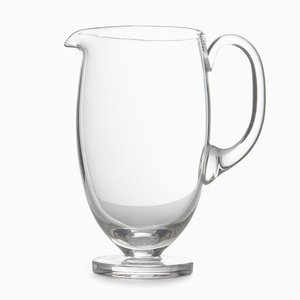
Couverture Intersecting Lines par Roberta Licini
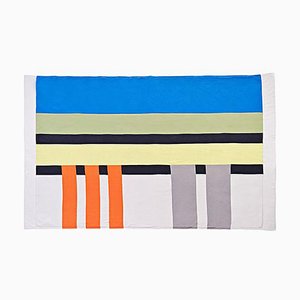
Bouteille Tulipe en Verre Soufflé Transparent par Aldo Cibic pour Paola C., 2018

Carafe Tulipe par Aldo Cibic
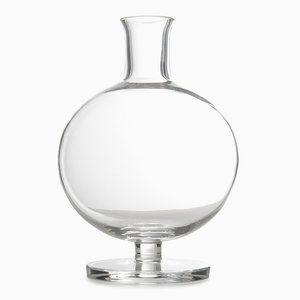
Sets de Table en Lin par Once Milano, Set de 2
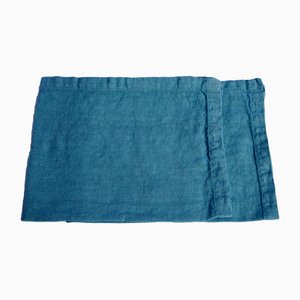




















 Intarsia Blanket with Stripes and Telo by Roberta Licini
Courtesy of Roberta Licini & L'AB/Pamono; Photo © Archetipocreativo - Francesco Tori
Intarsia Blanket with Stripes and Telo by Roberta Licini
Courtesy of Roberta Licini & L'AB/Pamono; Photo © Archetipocreativo - Francesco Tori
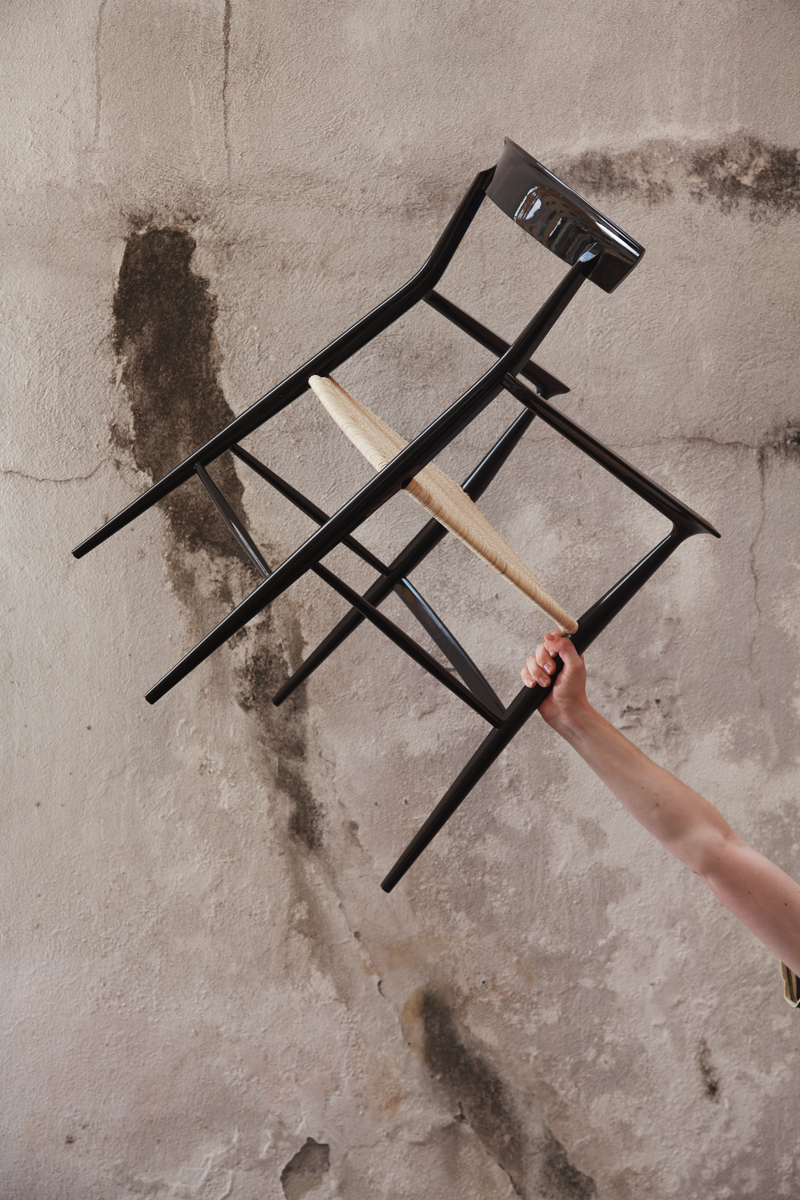 Tigullina Chair by Eligo
Photo © Eligo
Tigullina Chair by Eligo
Photo © Eligo
